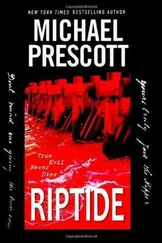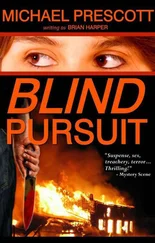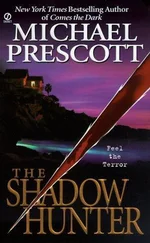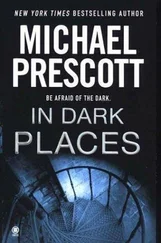Michael Prescott - Shiver
Здесь есть возможность читать онлайн «Michael Prescott - Shiver» весь текст электронной книги совершенно бесплатно (целиком полную версию без сокращений). В некоторых случаях можно слушать аудио, скачать через торрент в формате fb2 и присутствует краткое содержание. Жанр: Триллер, на английском языке. Описание произведения, (предисловие) а так же отзывы посетителей доступны на портале библиотеки ЛибКат.
- Название:Shiver
- Автор:
- Жанр:
- Год:неизвестен
- ISBN:нет данных
- Рейтинг книги:3 / 5. Голосов: 1
-
Избранное:Добавить в избранное
- Отзывы:
-
Ваша оценка:
- 60
- 1
- 2
- 3
- 4
- 5
Shiver: краткое содержание, описание и аннотация
Предлагаем к чтению аннотацию, описание, краткое содержание или предисловие (зависит от того, что написал сам автор книги «Shiver»). Если вы не нашли необходимую информацию о книге — напишите в комментариях, мы постараемся отыскать её.
Shiver — читать онлайн бесплатно полную книгу (весь текст) целиком
Ниже представлен текст книги, разбитый по страницам. Система сохранения места последней прочитанной страницы, позволяет с удобством читать онлайн бесплатно книгу «Shiver», без необходимости каждый раз заново искать на чём Вы остановились. Поставьте закладку, и сможете в любой момент перейти на страницу, на которой закончили чтение.
Интервал:
Закладка:
“So my tentative conclusion is that he’s a mixture of the last two categories. A sexually twisted sociopathic personality working out his frustrations by means of a violent power trip.”
‘“All right, Mr. Landers. Thank you. I take it you’ve covered everything I need to know about serial killers.”
“Except for one last point.”
“Which is?”
“They’re damn hard to catch.”
In the final analysis, however, Delgado based his understanding of the killer not on the BSU’s psychological profile, but on a fragment of ancient history that he remembered from one of his college classes-a small, bloody episode that merited barely a footnote in most texts, but which had been printed indelibly on his mind.
In A.D. 408 the grand minister Olympius had ruled the western half of the Roman Empire through the intermediary of the weak-willed and ineffectual emperor, Honorius. A lifetime of manipulation, scheming, and murderous betrayal had lifted Olympius to a position of nearly absolute power. Only one significant threat still faced him, the threat posed by the militant Goths, who wanted to claim the Empire for themselves. The Gothic armies had the manpower and the martial skills to defeat any forces loyal to the emperor. But they were held in check by the knowledge that their wives and families, sixty thousand women and children who had settled in Italian towns, were at the Romans’ mercy.
Olympius had everything he wanted. He controlled the Empire. He ruled the world or what was then known of it. As long as those sixty thousand hostages were his, the Goths could do nothing.
Olympius ordered the hostages killed.
There was no logic to what he did. In murdering those sixty thousand, he ensured his own downfall. He freed the Goths to move against him and avenge their loved ones. He must have known the consequences of the orders he gave; yet he gave them anyway.
Delgado’s teacher, perhaps embellishing the story, reported that as the slaughter was carried out, the bodies heaped high, and the mass graves filled, Olympius capered in his palace, exulting with frenzied glee: “This is greater than the Empire!”
Delgado believed the Gryphon was a man like that.
People assumed that anyone capable of senseless murder must be deranged. The popular stereotype, endorsed to a large extent by psychologists and sociologists and bright young experts like Landers of the BSU, was that of a man driven by irresistible impulses, unable to control his wild urges.
Delgado disagreed. Whatever his inner compulsions, the Gryphon was in final control of his actions. He knew what he was doing, just as he knew how to reach the police if he wanted to confess, or a psychiatrist if he wanted to get help. He planned his crimes with care, taking elaborate pains to avoid leaving evidence that might lead to his arrest. Afterward he showed no sign of remorse or even regret for what he’d done. Quite the contrary. Like Olympius, or like Hitler, Stalin, Mao, and Pol Pot, he reveled in death, intoxicated by the bloody elixir of the suffering he caused.
There was a word for such a man, a word so simple it had been all but forgotten in this complex modern age. A word Delgado’s grandmother in Guadalajara had known.
Evil.
Delgado nodded. Oh, yes. There was good and evil in the world. Underlying each of these three murders was the will of the man responsible, his private volition, his conscious choice to do violence to the innocent. He had felt the need to kill, and rather than resist that urge, he had given in to it, had acted on it three times and laughed about it later. His compulsions did not drive him; he allowed himself to be driven by them. And for what? An illusory sense of power, a sexual thrill, a few hours of fun. He was a man who took pleasure not in living, but in denying life to others.
Delgado stared moodily at the map on his wall, at the three red dots scattered across L.A.’s Westside. Somewhere in that sweep of lookalike houses and anonymous apartments and gas stations and stores, there was a killer who struck with the brutal impersonality of accident, an Olympius for a meaner and sorrier age. He fashioned his clay sculptures and then he played his game, choosing victims by some means Delgado could not guess, stalking them, killing them, and taking his hideous souvenirs.
Delgado knew everything about that man, except his name.
6
Franklin Rood stepped dripping out of the shower.
He took a shower every afternoon at four-thirty, immediately after getting home from work. He had a strong belief in the importance of personal hygiene. Many of the world’s problems, he felt, could be solved or at least significantly ameliorated if the common herd of people simply learned the value of cleanliness. Instead, just look at them, greasy and unwashed, sweat-stained and foul-smelling, the filth and dreck of the human cesspool. Disgusting.
Briskly he dried himself with a clean white towel, a towel as fresh and new as any that might be found in a hotel bathroom; Rood had no tolerance of dirty laundry, of anything dirty. He was, he supposed, a rather fastidious man. That was a nice word, wasn’t it? Fastidious. He said it out loud, enunciating each syllable clearly, then grinned at the mirror. What a fine smile he had. He looked lovingly at himself, freshly washed, his brown hair tousled and ropy, the skin of his shoulders flushed with the heat of the shower spray.
In the bedroom he put on his glasses, snugging the stems behind his ears, then dressed briskly in blue denim jeans, a plaid shirt with the sleeves rolled up to expose his muscled forearms, and white Reebok running shoes. The Reeboks were excellent for his purposes, permitting rapid movement while ensuring relative silence, and he’d sprayed them liberally with a silicon formula to keep off the worst of the stains.
On his way out of the bedroom, he paused to execute half a dozen pull-ups on the bar screwed into the doorframe. He did them easily, feeling no strain. Every morning and evening he performed a minimum of twenty chins and twenty squats to keep his arms and legs in condition.
He walked through the living room into the kitchen, and stopped before the refrigerator. Arctic air gusted against his face as he opened the door to the freezer compartment and peered inside. The freezer was crowded with unidentifiable leftovers in aluminum-foil wrapping. At first he couldn’t find the Swanson Hungry Man chicken pot pie he wanted. He rummaged in the freezer, looking past plastic trays of ice cubes and cans of orange juice. Then, with a delighted smile, he saw the corner of the box sticking out from behind the frozen blue mass of Miss Elizabeth Osborn’s head.
Rood slid the chicken pot pie out of the package, punched a few holes in the pie crust with a fork, and placed his dinner in the oven.
Checking his wristwatch, he saw that the time was now one minute to five. There were local newscasts at five. Couldn’t miss them. He hurried back to the living room, turned on the TV, loaded a blank videotape into the VCR, and settled into his armchair with the wireless remote in his hand. He pressed the button marked Record. The VCR started with a whir just as “Eyewitness News” began.
The female news anchor was afraid of him. Rood could see the fear furrowing her forehead, tugging at the corners of her mouth, moistening her lips. Every woman in the city was afraid. Well, they ought to be.
The top story was a fire in Topanga Canyon, fanned by the dry desert winds. Rood was disappointed. Fires were common. Fires had no business taking priority over the Gryphon.
He waited impatiently for the real news, the only news that counted. Finally it came on-the daily update on the city’s waking nightmare.
He quickly gathered that there were no new developments in the case. Ignoring the reporter’s meaningless commentary, he focused on the snippets of file footage, mostly pertaining to Miss Osborn’s murder.
Читать дальшеИнтервал:
Закладка:
Похожие книги на «Shiver»
Представляем Вашему вниманию похожие книги на «Shiver» списком для выбора. Мы отобрали схожую по названию и смыслу литературу в надежде предоставить читателям больше вариантов отыскать новые, интересные, ещё непрочитанные произведения.
Обсуждение, отзывы о книге «Shiver» и просто собственные мнения читателей. Оставьте ваши комментарии, напишите, что Вы думаете о произведении, его смысле или главных героях. Укажите что конкретно понравилось, а что нет, и почему Вы так считаете.












